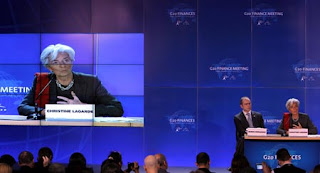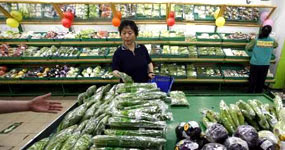Inflation And Uneven Recovery
Although the Federal Reserve reaffirmed its commitment to stay with low rates for an extended period, the recent spike in oil prices has made things tough. The fragile recovery has almost sealed the fate of interest rates at least until the end of the year even if it means that inflation rises in the near term. The commodity price rally witnessed now is a product of both supply side concerns triggered by recent geopolitical events and demand pick up in emerging economies such as China and India. Additionally, the dollar’s weakness is also exerting upward pressure on commodities denominated in the dollar. Real consumer spending growth slackened to 2.7 percent in the first quarter from the 4 percent pace in the fourth quarter despite nominal spending rising 0.8 points to 6.6 percent. Thus inflation has taken roughly 2.1 percentage points out of consumer spending. If prices keep rising, real spending slows down further in the second quarter. A notable slow down in the second quarter cou

